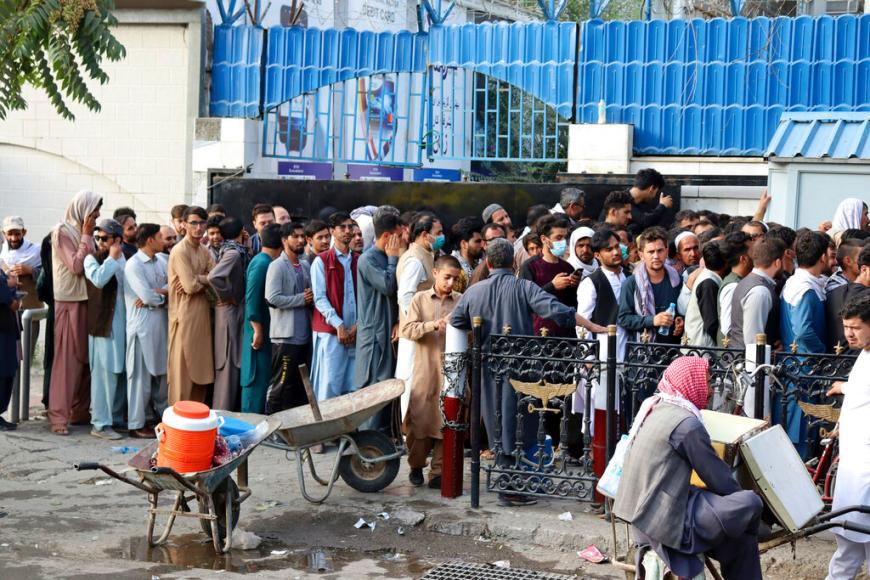Ever since the Taliban took over Afghanistan, the conflict-stricken nation has been dealing not only with political turbulence but also severe economic turmoil and increasing poverty. In consequence of the Taliban gaining control of the nation, Afghanistan saw a freeze of billions of dollars in the central bank, confiscated assets, and international financial institutions suspended access to funds. An enormous amount of $9.5 billion in central bank reserves remain blocked outside the country. In addition, international support and financial aid given to the previous governments (before the Taliban) has also dried up. The economic crunch over the past few months has made it difficult for the Taliban government to hand out salaries and emoluments to basic civil servants. The prices of food and essentials have jacked up while the banks of the country have is facing a cash drought. The International Monetary Fund has commented on the deteriorating condition, opining that the economy of Afghanistan is set to contract by as much as 30% by the end of 2022.
The present situation is particularly grim. The economic disruption coupled with severe territorial drought and Covid has worsened poverty and rendered millions of people jobless facing acute hunger. The increased volume of destitution and hunger appears to be out of control. The poverty has scaled so much that the locals have now resorted to selling private possessions and holdings to buy food and avail of other essential services. The spiraling poverty is not just restricted to the poor as the urban middle class is also facing food insecurity on unmatched levels. The people who had substantial savings are also struggling to pay for food and necessities due to limited withdrawals from banks. The Taliban government further has added to the troubles of the public by banning the use of foreign currencies for transactions resulting in unwanted hassle and difficulties. The sudden stop in donations to the government, disruptions of trade, and dysfunction of the banking sector have exponentially reduced the output.
Given the dire situation in Afghanistan, people have resorted to emigrating from Afghanistan. Thousands of testimonials from different domestic families are lining on the support to sell their homes at half prices and migrate from the country. The serious humanitarian crisis and socio-economic collapse are not only bad for Afghans but also for the region and its international security. The United Nations and other international humanitarian aid groups have remarked that if this condition of ‘insecurity of food and essentials” continues to escalate, then this insecurity would soon transcend into a major humanitarian catastrophe. In addition, The groups have warned that further instability and human suffering in Afghanistan could fuel an increased migration crisis that could further result in a similar condition like the one In 2015 when hundreds of thousands of asylum-seekers from Syria shook Europe.

